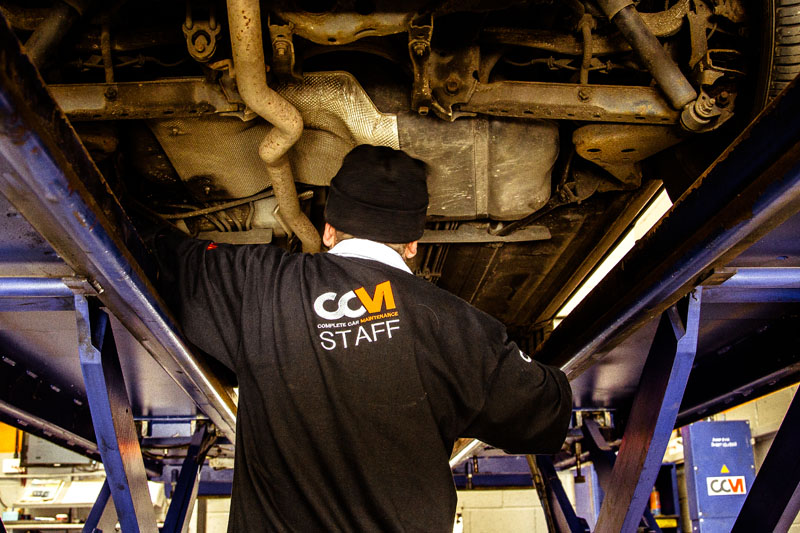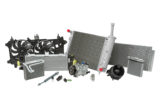
PMM ’s Kieran Nee visited CCM’s Ewhurst workshop to speak to Operations Director Tina Drayson. In this second instalment, Tina discusses the importance of worker welfare and her business mentality.
Tina and I ended our discussion in the last issue of PMM discussing the importance of placing the right value on the service you provide customers. For Tina, this goes beyond how garages interact with the public. She believes the problem extends to the trade itself, and feels that “trade rates” are often simply a way for less well trained workshops to profit off of your expertise, as she tells me below.
Can you explain a little bit your attitude towards “trade rates”?
Other garages can get very upset when they come to us with a problem that they can’t resolve. We cover a huge range of problems on vehicles, which we have achieved through major investment in skills, training, personnel and equipment. As I mentioned before, we value the work we do so why would we charge less than we charge a retail customer – after all, we’re not overcharging the ordinary customers. At the end of the day, the other garage would still be charging their customer the full amount, thus profiting on work they haven’t even done themselves.
How important is it to stay on top of training in this industry?
It’s extremely important, if I’m honest. Vehicles are constantly changing. For instance, if you don’t understand an element of diagnostics now, you won’t progress very far. Furthermore, it’s important you train staff even beyond the workshop. We put all of our front of house staff through training courses and I myself regularly train. I’ve just completed my Green Belt Six Sigma, in fact.
Could you explain what that is?
It is a methodology about how to take waste out of your business. It’s about processes, and how to streamline them to improve the way people do things. Every company is a group of individuals with different mindsets and different ways of doing things, it’s important to understand the way people work.
These are ideas that can be used in any business. Take, for example, a technician performing a task. Watch that technician and count how much time they spend walking away from that task to collect parts, or instructions or even water. Then think, what processes can we put in place to reduce that wasted time and get the most out of his time.
It’s not about imposing something from above – a one-size-fits-all approach. It’s about observing the reality on the ground first and eliminating inefficiencies. It’s something that all garages could use to improve their business. Furthermore, this isn’t about squeezing the workers to get the most out of them. Having all the parts you need for a particular job in the right place benefits the technician themselves as well as reducing the time taken to perform the task.
How do you know what works and what doesn’t?
I am a firm believer in data analysis. Every month I look over the statistics concerning the workshop to see what is going on and to deduce any trends and whether anything needs to be altered. For instance, I was comparing how many trade MOTs we do to how many retail MOTs. With retail MOTs we win any onwards business, whereas with trade MOTs we don’t, because the other garage does the work. Earlier this year, we lost a big trade account. This trader accounted for a huge amount of trade MOTs – around 90 MOTs a month.
It turned out to be a typical example of the 80-20 rule – using 80% of your time on 20% of your turnover. So I actually did an analysis of it and realised that was 90 times you had to pick the phone up, make a booking, 90 times the tester had to log in to the system, draw up an invoice and send an invoice. nine times out of 10 we had to chase payment. But, those 90 jobs only provided around £3,500. That time spent on those MOTs was easily refilled by more profitable work. Not all work is equal. Sometimes, if you are busy you are missing out on better jobs.
A similar thing happened during furlough, when certain garages got used to working with only half their staff in at any one time, that when potential jobs started coming back in through the door, they were choosing to postpone the work to suit the furlough rather than ending furlough to do the work.
How important is it that your workers themselves are happy?
Workplace culture is so important. We’ve worked on it a lot. I feel very strongly about it, personally. We don’t do Saturdays, everybody deserves the weekend off to spend it with family. That’s been a big selling point when recruiting new technicians too. We give our technicians the opportunity to learn and grow. We’re very open with the team, tell them how the business is doing – whether good or bad. We also encourage them to tell us what they’re not happy with and give us updates on what they’re thinking – sometimes more tactfully than others.
We’re also very understanding about taking time off for family events and other things that are important – with no need to book it off as holiday. It also works the other way around then. When we’re really busy, we can ask them to work a bit later from time to time and there’s never a problem. They have the choice then whether they get paid overtime or get extra holiday days in lieu.









